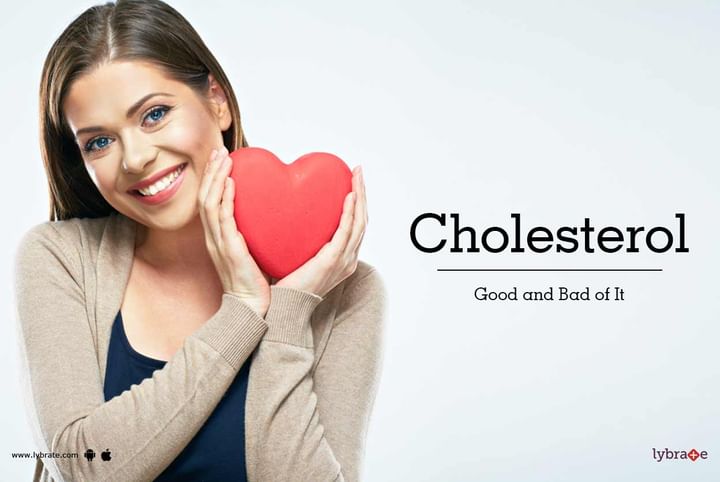Cholesterol: Good and Bad of It
Over the last few decades, the word cholesterol has assumed a different connotation. It has come to be known as a silent killer that spells doom for health. However, what we need to realize is that a certain amount of cholesterol is essential for the proper functioning of the body. The liver produces about 85% of the cholesterol that is required by the body normally. The ever changing food habits have introduced a lot of processed foods that are loaded with saturated fats. Along with this, reduced physical activity has led to accumulation of cholesterol in the blood.
The types of cholesterol are based on the density and we have 2 types of density that is Low Density Lipoprotein (LDL) and High Density Lipoprotein (HDL). LDL is more dangerous than HDL, called as bad and good cholesterol respectively. In addition, the triglycerides and lipoprotein are also critical indicators of overall cholesterol levels. Depending on a person's age, height and weight, normal levels are derived for each of these four.
Because of their density of the cholesterol molecules, as they are circulating in the blood stream, they tend to get sluggish and settle down along the walls of the blood vessels, referred to as plaque. This plaque attracts more and more cholesterol from the blood and the layer gets gradually thicker. This reduces the thickness of the blood vessels and in severe cases even completely blocks blood flow to important organs like the brain and heart, leading to severe conditions like stroke and heart attack respectively.
However, it is not always that all cholesterol is bad. It is one of the essential things for the proper body functions with the main functions listed below:
- Each cell in the body requires it to form the cell membrane, the protective layer around the cells
- Synthesis of vitamin D is done with the help of cholesterol, which is very essential for skin health
- It also helps in hormone formation. In addition to steroids, other hormones like testosterone, estrogen, cortisol require cholesterol as a main ingredient
- Formation of neurotransmitters and overall nerve function requires cholesterol. This ensures optimal neurological functioning.
So, as noted above, there are, both good and bad aspects to cholesterol. It is not all that dangerous a thing that it is made out to be. The trick is to maintain a good level of cholesterol so that the body's requirements are met, and at the same time, the harmful effects are kept at bay. Some important parameters to manage, include the percentage of bad cholesterol in the blood and the ratio of triglycerides to HDL in the blood. These are considered fair indicators of heart health and if need be, lifestyle changes and/or medications can be undertaken to manage overall health and reduce risk of heart disease and stroke.



+1.svg)
